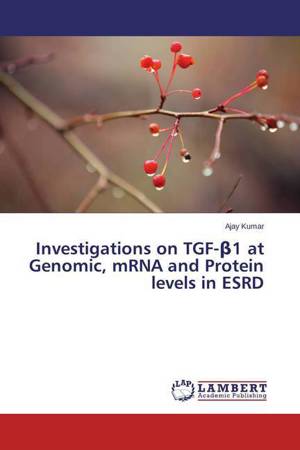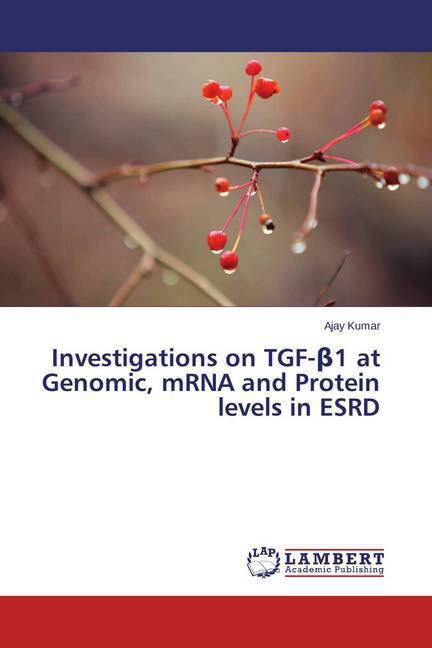
Bedankt voor het vertrouwen het afgelopen jaar! Om jou te bedanken bieden we GRATIS verzending (in België) aan op alles gedurende de hele maand januari.
- Afhalen na 1 uur in een winkel met voorraad
- In januari gratis thuislevering in België
- Ruim aanbod met 7 miljoen producten
Bedankt voor het vertrouwen het afgelopen jaar! Om jou te bedanken bieden we GRATIS verzending (in België) aan op alles gedurende de hele maand januari.
- Afhalen na 1 uur in een winkel met voorraad
- In januari gratis thuislevering in België
- Ruim aanbod met 7 miljoen producten
Zoeken
Investigations on TGF-beta1 at Genomic, mRNA and Protein levels in ESRD
Ajay Kumar
Paperback | Engels
€ 79,45
+ 158 punten
Omschrijving
ESRD is a complex inflammatory disease with multiple causes. Its complex phenotype is the result of interactions between genetic and environmental factors. Apparent trends in epidemiology of ESRD can be attributed to long term diseases such as diabetes and hypertension. These 'silent killers' of kidney disease pronounce their effect much before they are finally diagnosed in a patient. Diabetes causes up to 29.9% of ESRD cases in various developing countries whereas hypertension leads to 13 to 21% of the cases. The risk among Indians to develop this terminal renal disease is very high, as Indians represent the highest number of diabetics in the world. Of the various candidate genes implicated in pathophysiology of ESRD, transforming growth factor-beta1 (TGF-beta1) gene is investigated in different populations of the world. The available reports fail to present a comprehensive outlook of TGF-beta1's role in the pathophysiology of ESRD. Overall aim of the present study was to evaluate the role of TGF-beta1 in diabetic and hypertensive ESRD patients in North Indian Punjabi population.
Specificaties
Betrokkenen
- Auteur(s):
- Uitgeverij:
Inhoud
- Aantal bladzijden:
- 284
- Taal:
- Engels
Eigenschappen
- Productcode (EAN):
- 9783659616365
- Verschijningsdatum:
- 25/03/2015
- Uitvoering:
- Paperback
- Afmetingen:
- 150 mm x 220 mm
- Gewicht:
- 417 g

Alleen bij Standaard Boekhandel
+ 158 punten op je klantenkaart van Standaard Boekhandel
Beoordelingen
We publiceren alleen reviews die voldoen aan de voorwaarden voor reviews. Bekijk onze voorwaarden voor reviews.









